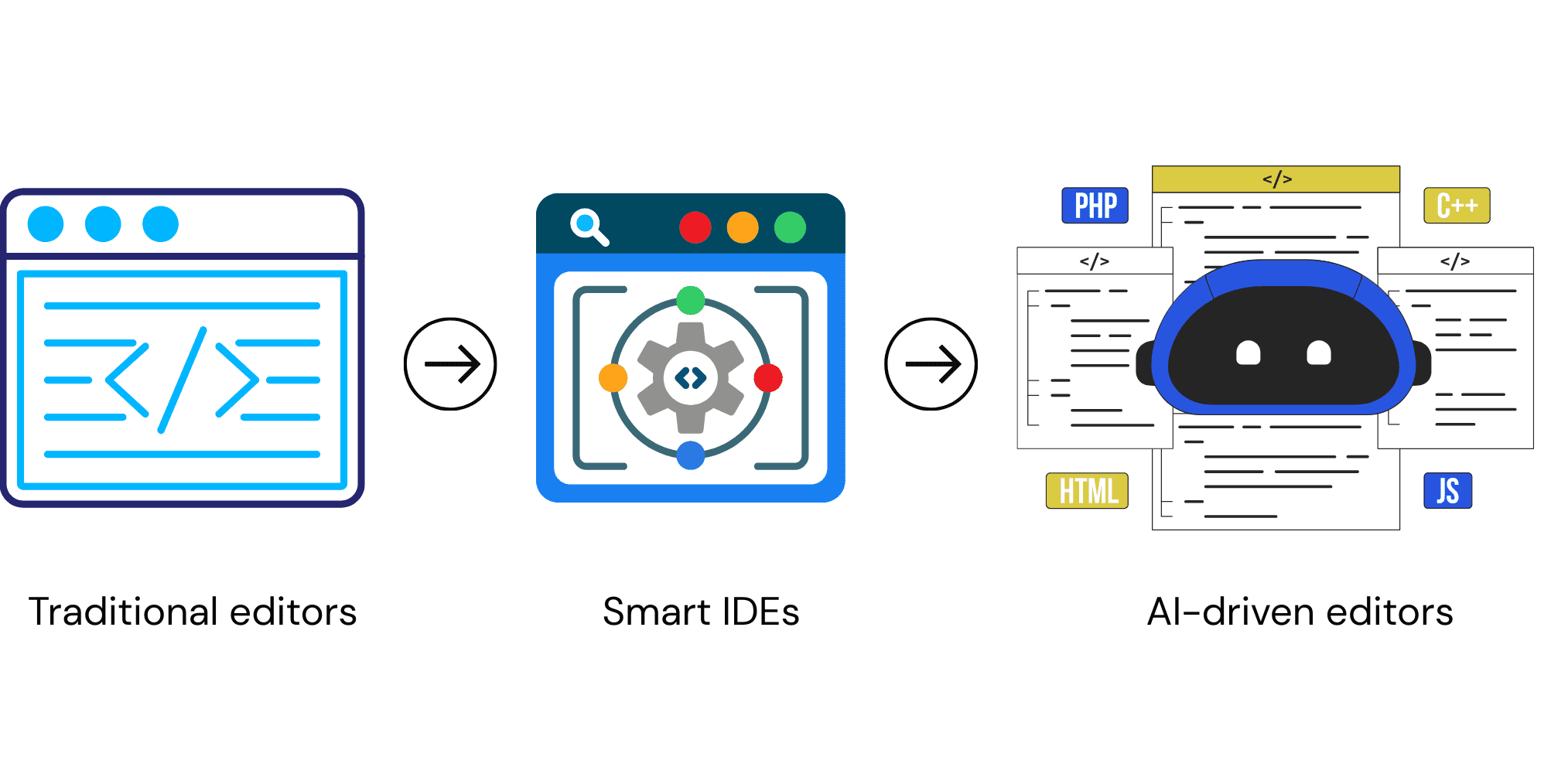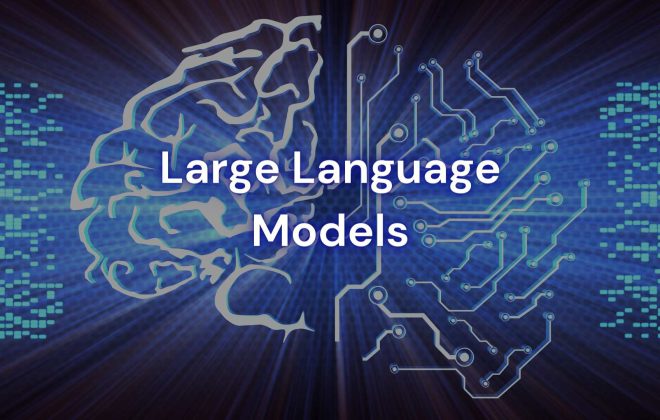Level Up Your Development: The Rise of AI Code Editors
At AnaData Consulting Inc., we specialize in helping businesses leverage cutting-edge technologies to streamline their development processes and deliver high-quality solutions. One such transformative technology gaining traction in the developer community is AI-powered code editors. These tools are revolutionizing the way we write, test, and debug code, making the development lifecycle faster, smarter, and more efficient.
If you’re still relying solely on traditional IDEs, you might be missing out on significant productivity gains and workflow enhancements. AI code editors are not about replacing developers—they’re about augmenting us, removing friction, and allowing more time to focus on architectural thinking, logic, and domain-specific challenges.
From Syntax Highlighting to Semantic Assistance
For years, IDEs like IntelliJ IDEA, Visual Studio, and VS Code have provided developers with essential features: syntax highlighting, static analysis, and basic code completion. These capabilities are foundational—but they still put the burden of ideation, problem-solving, and bug-hunting squarely on the developer.
Modern AI code editors, such as GitHub Copilot, Cursor, CodeWhisperer, and Tabnine, are taking things several steps further. They’re driven by large language models (LLMs) trained on billions of lines of code, enabling them to reason about intent, context, and structure in unprecedented ways.


How AI Code Editors Are Changing the Game
? Intelligent Code Completion — Beyond Predictive Typing
Forget keyword suggestion. With tools like GitHub Copilot, you can write a comment like // fetch user data and sort by date and receive a full implementation in seconds—often with idiomatic patterns that match your language and framework of choice.
These systems use LLMs like GPT-4 or Code LLaMA to infer what you’re trying to do, often completing entire functions, classes, or boilerplate-heavy structures such as REST endpoints or test scaffolds.
Example:
Python
# Convert a list of strings to a dictionary with their lengths
def string_length_dict(strings):
return {s: len(s) for s in strings}
Even vague intents are often enough to generate surprisingly accurate scaffolding, especially when you’re working with common frameworks or libraries.
? Real-time Error Detection — Preventing Bugs at the Source
Modern AI editors can surface potential issues before compilation or execution. This includes:
- Syntax and logic errors
- Null reference risks
- Common security pitfalls (e.g., SQL injection vectors)
- API misuse
For example, Amazon CodeWhisperer can flag insecure code patterns in AWS SDK usage, while Copilot Labs can identify logical inconsistencies based on expected code behavior—even if there’s no explicit test.
This shifts the debugging mindset from post-facto triage to real-time prevention, especially useful in fast-paced CI/CD environments.
? Code Explanation — Navigating Complexity with Context
Working on legacy systems or unfamiliar codebases often means deciphering undocumented logic. AI tools can now generate natural-language explanations of code blocks.
“This function parses a CSV, validates the headers, and loads rows into a PostgreSQL table using batch inserts.”
This is particularly useful during onboarding or cross-team collaboration. Tools like Explain Code (via Copilot Labs) are becoming essential for devs facing sprawling or outdated systems.
?️ Code Refactoring — Cleaner, Smarter, Faster
AI-assisted refactoring goes beyond IDE hints like “extract method” or “rename variable.” These tools can:
- Identify repeated logic
- Suggest abstraction opportunities
- Improve readability (e.g. renaming ambiguous variables)
- Offer performance-oriented tweaks
For example, Cursor can propose structural refactors in a React component hierarchy based on how props and state are used—something even advanced linters might miss.
✅ Test Case Generation — Auto-Coverage for Confidence
One of the more emerging frontiers is automatic unit test generation. Tools like CodiumAI or Copilot X can generate initial test cases for a given function, taking into account edge cases, inputs, and output types.
While not production-ready on their own, these autogenerated tests serve as excellent scaffolds or reminders of what needs coverage.
In TDD or CI-driven workflows, this feature alone can cut test-writing time dramatically, especially for simple functions or regression suites.
? Challenges and Considerations
AI editors are powerful, but they’re not infallible. Developers should be aware of the following:
- Context Limits: Most AI assistants operate within a token window (e.g. ~8,000–100,000 tokens). They can lose track of broader system context or cross-file logic.
- Hallucinations: AI may generate syntactically valid but logically incorrect code. Blind copy-pasting is risky.
- Security: Code suggested by AI could inadvertently replicate vulnerable patterns found in training data.
- Licensing & IP: There are ongoing legal debates about code generation and licensing when models are trained on public repositories.
A good rule of thumb: Trust, but verify. Treat AI-generated code like a junior developer’s contribution—helpful, but always worth reviewing.
? The Road Ahead
The integration of AI into code editors is more than just a passing trend—it’s a paradigm shift. Developers are moving from being code writers to code reviewers, problem solvers, and architectural thinkers, with AI handling a growing share of low-level implementation and boilerplate.
By embracing AI-assisted development today, you position yourself to work faster, write cleaner code, and ultimately build better software—without burning out.
Whether you’re a junior dev looking to learn patterns, or a senior engineer managing complexity across large systems, AI code editors are rapidly becoming a core part of the modern development toolkit.
? TL;DR
AI code editors are:
- Context-aware assistants, not just autocomplete
- Capable of generating code, tests, and explanations
- Boosting velocity, quality, and focus
- Still maturing—be cautious but curious
Level up your development. Not by replacing yourself, but by upgrading the tools you wield.
At AnaData Consulting Inc., we’re always exploring ways to improve productivity, quality, and efficiency for our clients. AI-powered development tools are one area where we see tremendous potential. Interested in learning more about how AI can optimize your development workflows?
Contact us today to discuss how we can help you implement these tools effectively.
Related Posts
Leave a Reply Cancel reply
Categories
- Learning (10)
- Programming Concepts (1)
- Recruitment (1)
- Technology (10)
- Uncategorized (2)




